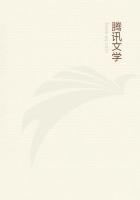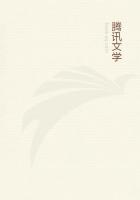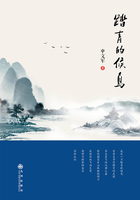Unhappily, a few months after the appearance of the Journey to the Hebrides, Johnson did what none of his envious assailants could have done, and to a certain extent succeeded in writing himself down.The disputes between England and her American colonies had reached a point at which no amicable adjustment was possible.Civil war was evidently impending; and the ministers seem to have thought that the eloquence of Johnson might with advantage be employed to inflame the nation against the opposition here, and against the rebels beyond the Atlantic.He had already written two or three tracts in defence of the foreign and domestic policy of the government; and those tracts, though hardly worthy of him, were much superior to the crowd of pamphlets which lay on the counters of Almon and Stockdale.But his Taxation No Tyranny was a pitiable failure.The very title was a silly phrase, which can have been recommended to his choice by nothing but a jingling alliteration which he ought to have despised.The arguments were such as boys use in debating societies.The pleasantry was as awkward as the gambols of a hippopotamus.Even Boswell was forced to own that, in this unfortunate piece, he could detect no trace of his master's powers.The general opinion was that the strong faculties which had produced the Dictionary and the Rambler were beginning to feel the effect of time and of disease, and that the old man would best consult his credit by writing no more.
But this was a great mistake.Johnson had failed, not because his mind was less vigorous than when he wrote Rasselas in the evenings of a week, but because he had foolishly chosen, or suffered others to choose for him, a subject such as he would at no time have been competent to treat.He was in no sense a statesman.He never willingly read or thought or talked about affairs of state.He loved biography, literary history, the history of manners; but political history was positively distasteful to him.The question at issue between the colonies and the mother country was a question about which he had really nothing to say.He failed, therefore, as the greatest men must fail when they attempt to do that for which they are unfit; as Burke would have failed if Burke had tried to write comedies like those of Sheridan; as Reynolds would have failed if Reynolds had tried to paint landscapes like those of Wilson.Happily, Johnson soon had an opportunity of proving most signally that his failure was not to be ascribed to intellectual decay.
On Easter Eve 1777, some persons, deputed by a meeting which consisted of forty of the first booksellers in London, called upon him.Though he had some scruples about doing business at that season, he received his visitors with much civility.They came to inform him that a new edition of the English poets, from Cowley downwards, was in contemplation, and to ask him to furnish short biographical prefaces.He readily undertook the task, a task for which he was pre-eminently qualified.His knowledge of the literary history of England since the Restoration was unrivalled.That knowledge he had derived partly from books, and partly from sources which had long been closed; from old Grub Street traditions; from the talk of forgotten poetasters and pamphleteers who had long been lying in parish vaults; from the recollections of such men as Gilbert Walmesley, who had conversed with the wits of Button; Cibber, who had mutilated the plays of two generations of dramatists; Orrery, who had been admitted to the society of Swift; and Savage, who had rendered services of no very honourable kind to Pope.The biographer therefore sate down to his task with a mind full of matter.He had at first intended to give only a paragraph to every minor poet, and only four or five pages to the greatest name.But the flood of anecdote and criticism overflowed the narrow channel.The work, which was originally meant to consist only of a few sheets, swelled into ten volumes, small volumes, it is true, and not closely printed.
The first four appeared in 1779, the remaining six in 1781.
The Lives of the Poets are, on the whole, the best of Johnson's works.The narratives are as entertaining as any novel.The remarks on life and on human nature are eminently shrewd and profound.The criticisms are often excellent, and, even when grossly and provokingly unjust, well deserve to be studied.For, however erroneous they may be, they are never silly.They are the judgments of a mind trammelled by prejudice and deficient in sensibility, but vigorous and acute.They therefore generally contain a portion of valuable truth which deserves to be separated from the alloy; and, at the very worst, they mean something, a praise to which much of what is called criticism in our time has no pretensions.
Savage's Life Johnson reprinted nearly as it had appeared in 1744.Whoever, after reading that life, will turn to the other lives will be struck by the difference of style.Since Johnson had been at ease in his circumstances he had written little and had talked much.When, therefore, he, after the lapse of years, resumed his pen, the mannerism which he had contracted while he was in the constant habit of elaborate composition was less perceptible than formerly; and his diction frequently had a colloquial ease which it had formerly wanted.The improvement may be discerned by a skilful critic in the Journey to the Hebrides, and in the Lives of the Poets is so obvious that it cannot escape the notice of the most careless reader.
Among the lives the best are perhaps those of Cowley, Dryden, and Pope.The very worst is, beyond all doubt, that of Gray.


